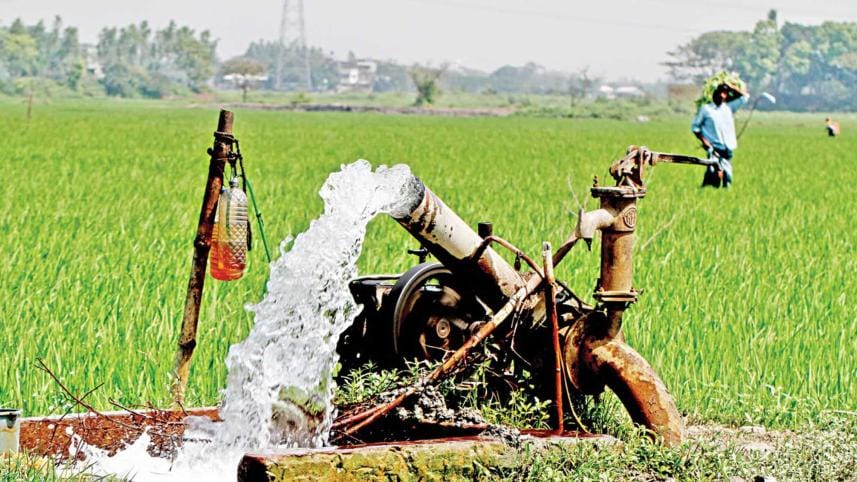Where will depleting groundwater leave us?

We note with great concern that an estimated 32 cubic kilometres of groundwater is being extracted annually in Bangladesh, which is having a disastrous effect on the groundwater system of the country. As a result of overextraction, scientists warn of extreme arsenic and other heavy metal contamination, increased salinity, and groundwater depletion. The bad news is that the water level is not being recharged even after the monsoon seasons.
According to the Department of Public Health Engineering, Bangladesh requires about 2.75 million litres of water per day, 80 percent of which are extracted from the ground, and the rest is met by surface water. Bangladesh ranks seven out of 10 countries in the Asia-Pacific region that extract the most groundwater. Groundwater is being depleted not only in Dhaka and other cities, but all over the country. Researchers identified that, in 2006, the number of shallow water pumps that extract groundwater was a little over 1.18 million, but in 2019, the number went up to 1.6 million.
It is indeed alarming that because of the overextraction of groundwater, already 24 percent of land area in Bangladesh is exposed to high risks of elevated arsenic, salinity and groundwater depletion calamity. Furthermore, it is said that 4.5-17 percent of our total population are exposed to such extreme conditions, and among them nearly 8.6 million are from lower income backgrounds.
It is now common knowledge that continued depletion of groundwater poses serious threats to the water reservoirs, which increases the risk of top soil fertility loss in agricultural lands, and ultimately desertification of large areas.
The answer to solving the problem can be found in reducing the dependence on groundwater and its usage. As per the SDGs, 70 percent of our water consumption must come from surface water sources.
But, as we know, our surface water is horrendously polluted. Therefore, use of surface water will be possible only when the government's water recycling and purifying plants are ready for operation. We urge the government to make these plants operational without any further delay. We also need to devise mechanisms to harvest rainwater to reduce the dependence on groundwater.
In the end, there can be no better alternative than to actually preserve whatever surface water is available from further contamination. The use of ETPs should be made mandatory for all factories. If the laws are strictly enforced, the rivers will be pollution-free and the water can be used for industrial and agricultural purposes.



 For all latest news, follow The Daily Star's Google News channel.
For all latest news, follow The Daily Star's Google News channel.
Comments